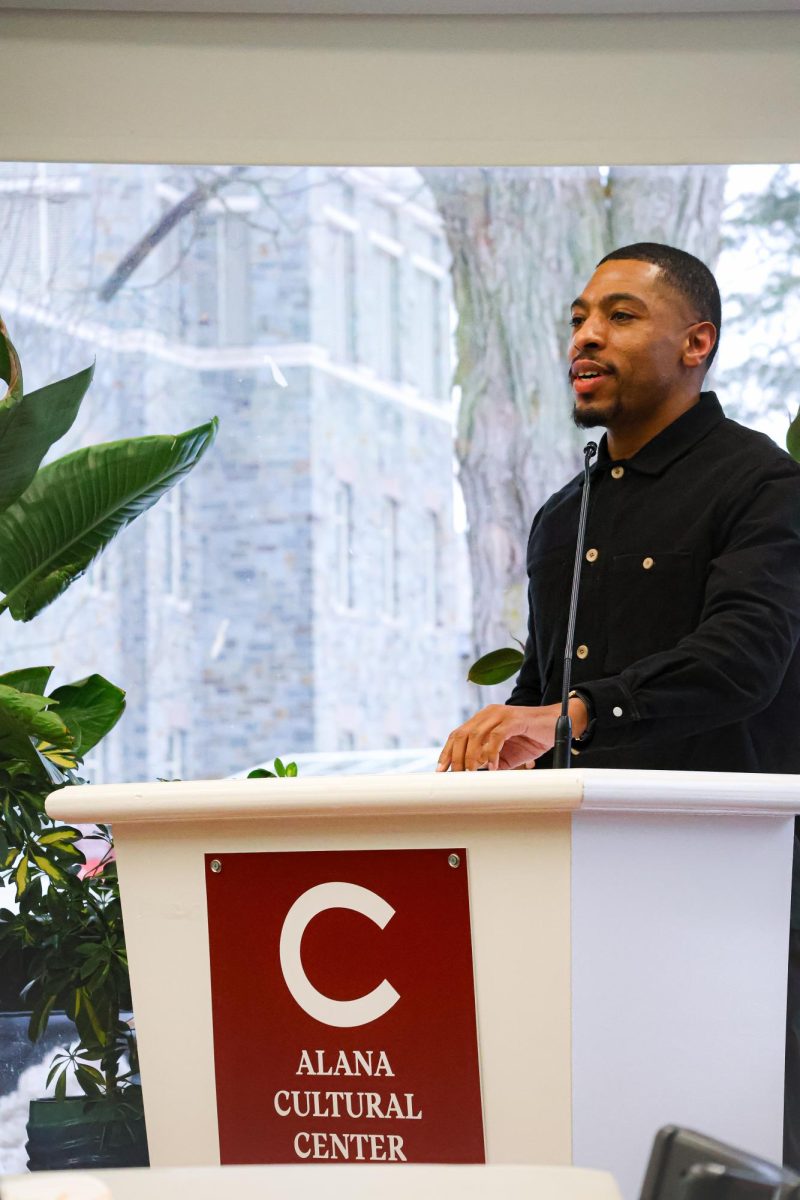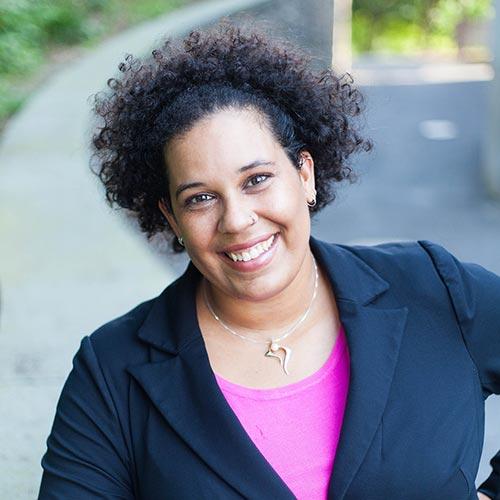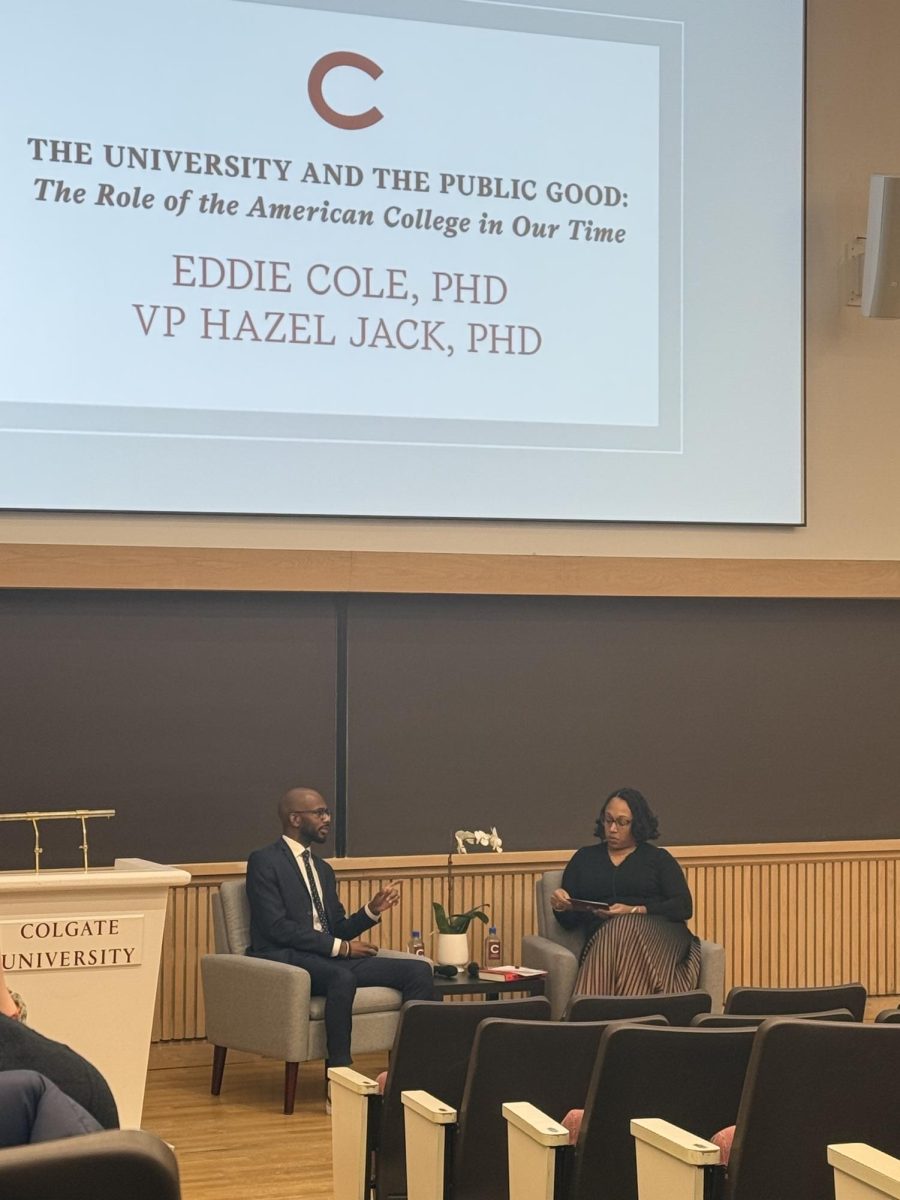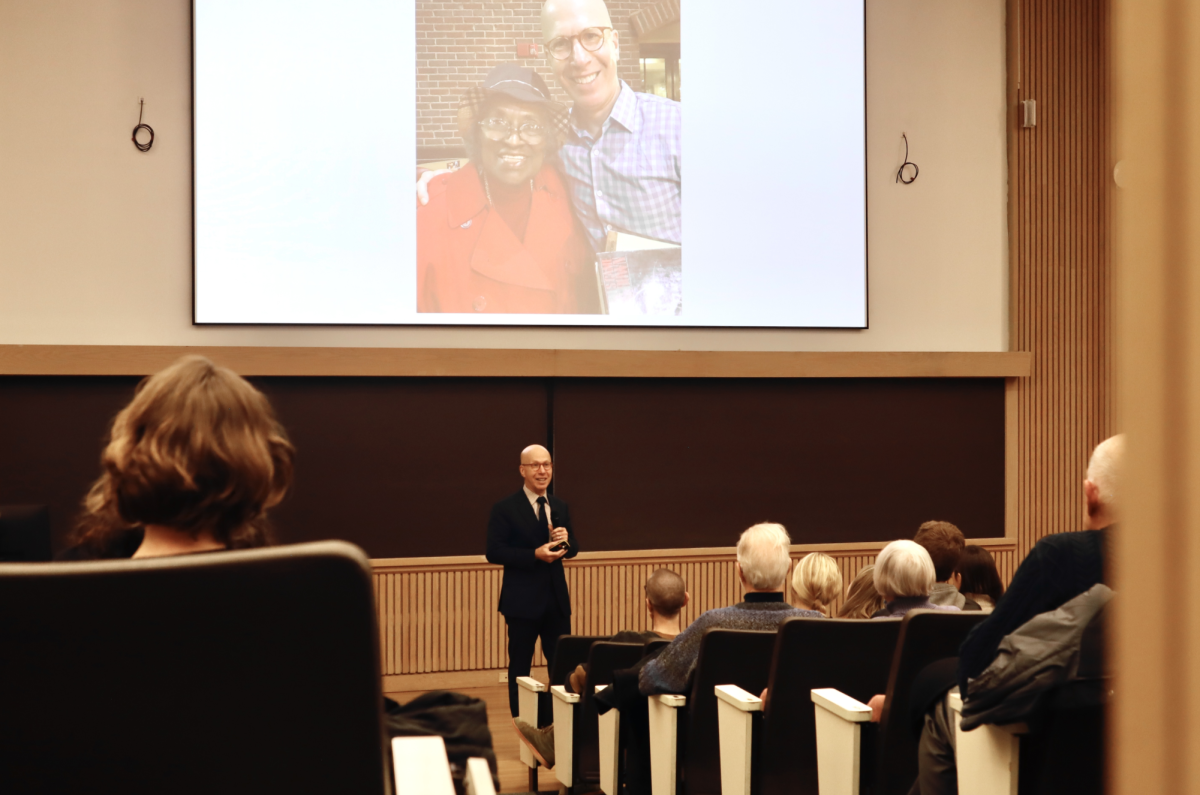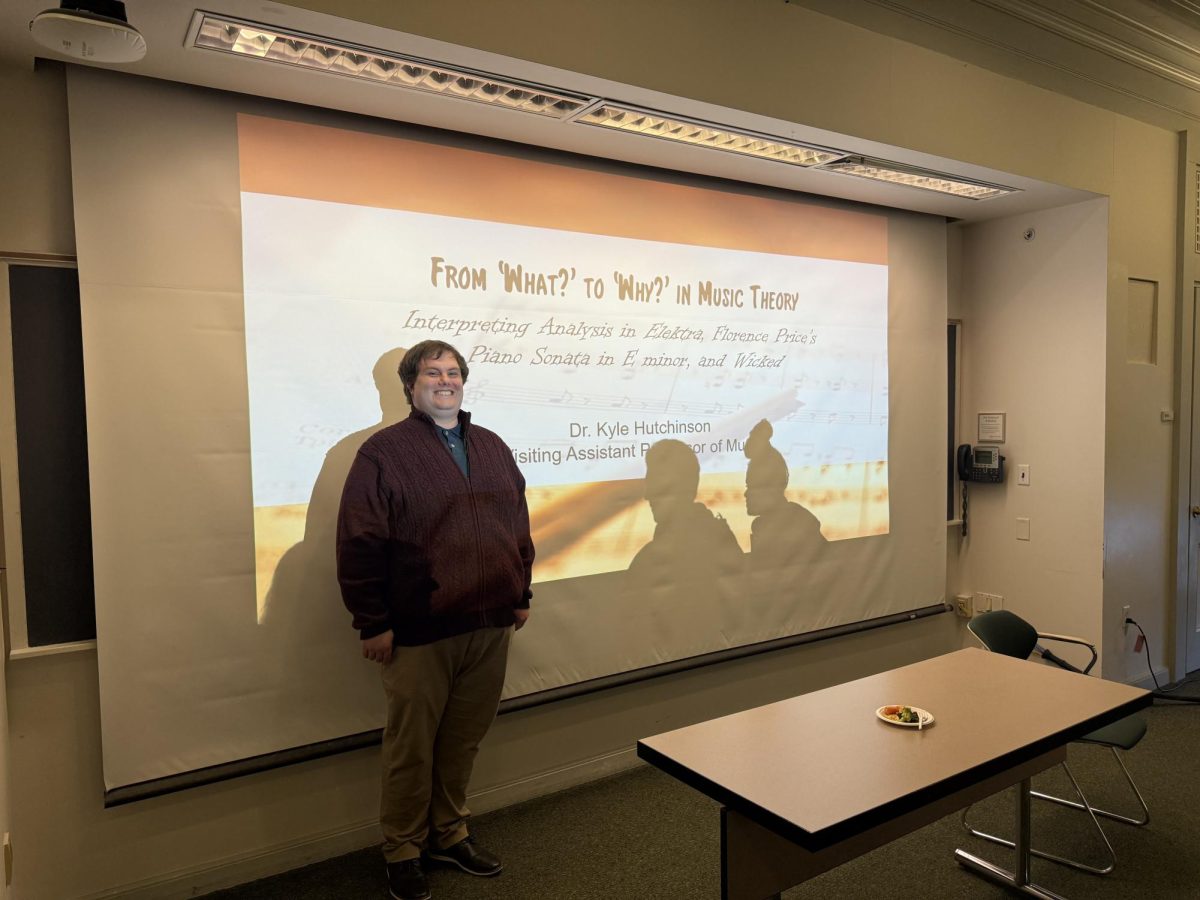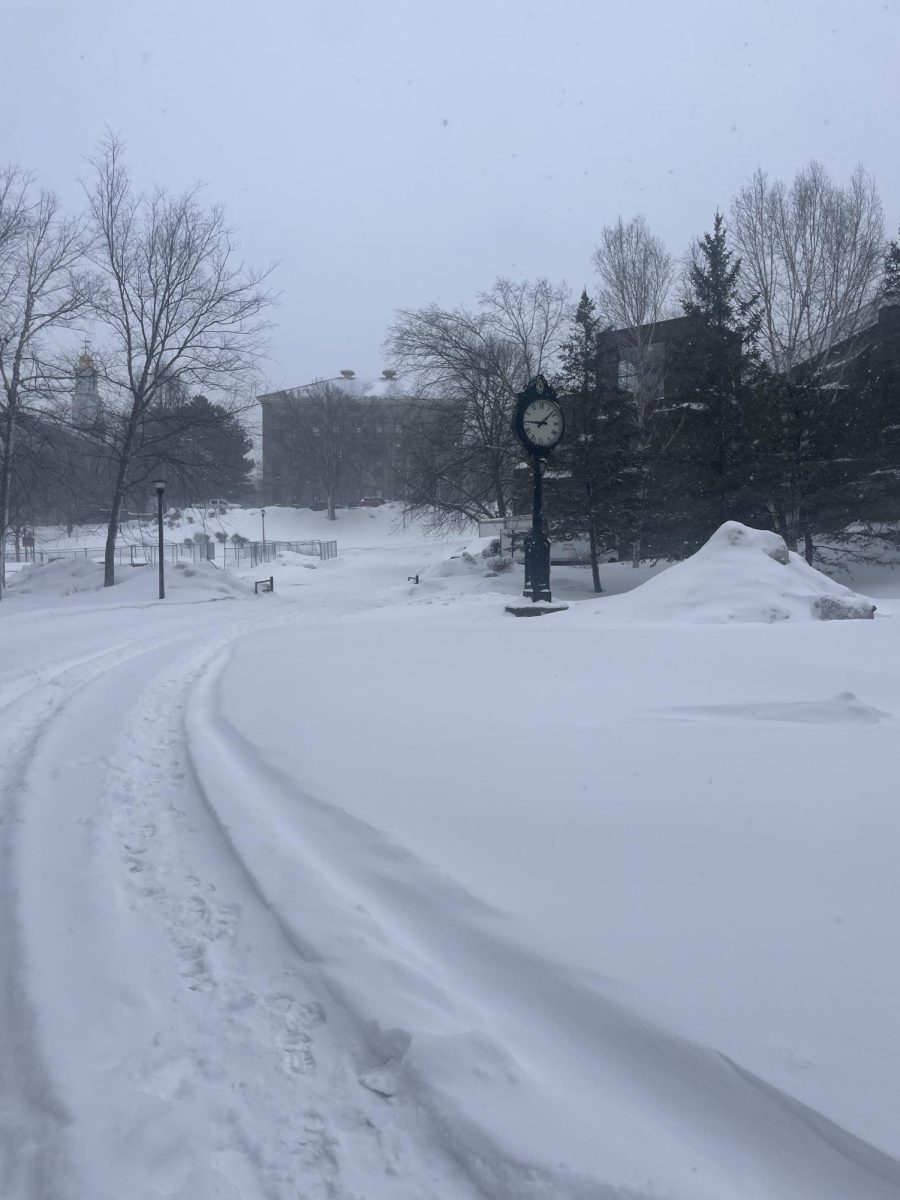Colgate University welcomed Orisanmi Burton, assistant professor of anthropology at American University, to speak about his new book, “Tip of the Spear: Black Radicalism, Prison Repression, and the Long Attica Revolt.” Throughout the Oct. 24 lecture, Burton informed the full auditorium about the counterrevolutionary measures taken against inmates and shed light on his research methods.
Justin Helepololei, assistant professor of anthropology at Colgate University, found the lecture to be insightful.
“One thing that I hope students got out of it — and from the questions, I think they did — is how entangled violence is within so many of our institutions. Not just prisons but also our universities,” Helepololei said. “[And] within that how many opportunities there are to also recognize other ways of being there and caring for each other and imagining other worlds.”
At the outset of the lecture, Burton laid out the arguments in his monograph.
“The main argument is that prisons in the United States are best understood as dynamic, flexible, reforming technologies of counter-revolutionary warfare that masquerade as political instruments of crime control,” Burton said. “The book is a work of historical ethnography that is organized around the antagonism between a criminalized tradition of Black revolutionary proxies and the repressive apparatus of the state, or what I call the ‘carceral warfare state.’”
Using historical examples, such as a 1971 prison riot in Attica, N.Y., Burton also posited that prisons were suppressive organizations.
“In the wake of Attica, they began to undermine and suppress Black radical thought. That is through progressive prison reform, and specifically, in this case, through formal, university-sponsored prison education programs,” Burton said. “The criminal justice frame posits incapacitation, retribution, deterrence and rehabilitation as the core functions of the prison.”
Burton delved into the details of how the prisons silenced those whom they targeted.
“[Prior] literature tends to critique the prison system based on its failure to achieve its publicly stated goals, or because of its racial and class disproportionality, or because of its unjustified massification over time. This approach leads to a misdiagnosis that we hear repeated again and again the prison system is broken,” Burton said.
According to Burton, the massification of the United States prison system was in response to Black radicals after 1963. He moved to the idea of “the carceral war,” which he said has been happening in the U.S. prison system.
“First of all, the agents of this war are structurally incentivized to lie and omit critical details about their scandalous methods,” Burton said, referencing prison staff and federal prison boards. “Exposing them would hinder their effectiveness, violate the express norms of liberal democracy and render those who employ them vulnerable to legal sanction.”
Burton continued by emphasizing the violent nature of prisons.
“Prison is not performing a criminological function, but a war function,” Burton said.
Burton taught the audience about prisoner-led education programs. To emphasize his point, he drew from the teachings one of his collaborators, Eddie Ellis, brought with him to prison.
“Instead of being broken, [Ellis] brings Mao and Fanon into prison with him, and later he helps facilitate the political education classes that take place in the yard prior to the rebellion,” Burton said while speaking of the Attica prison rebellion. “The jails are the universities of the revolutionaries and the finishing school of the Black Liberation Army.”
Burton continued to emphasize the education that occurred in prisons, taught by Black activists, by quoting advertisements for it.
“You will read as you have never read before. You will think, write and discuss ideas with other brothers and sisters about our common oppression, both in jails and in the streets, and what to do about it. You will eat, sleep and breathe oppression 24 hours a day, and you will meet the oppressor full-blown and buck-naked in his natural surroundings. And you will become aware,” Burton said.
During the Q&A portion of the lecture, Burton exposed some of the darker secrets uncovered during his research.
“I found out that they were performing medical experiments on Black prisoners,” Burton said. “And it had been mentioned casually, in passing.”
Although the content of the book was the main focus of the lecture, Burton made a point to share his research methods with the attendees, emphasizing much of his archival work.
He referenced countless other revolutionaries he worked with while writing the book, which he mentioned could hardly be compiled into one 45-minute lecture.
“I’m now working on publishing unpublished writings of Dhoruba bin Wahad,” Burton said, referencing his continued work in relation to “Tip of the Spear.”
Sophomore Sarah Sandifer attended the lecture and appreciated the opportunity to hear from one of the leading anthropologists studying prison rebellion.
“I thought Burton’s talk was really engaging and helped develop the thesis of his book well,” Sandifer said. “By the end of it, I could see the connections between radical Black thought and incarceration in America, as well as the role personal archival work plays.”
The lecture engaged with difficult topics for the audience and Burton to discuss.
“A lot of what I found scared me,” Burton said.
Still, this did not stop Burton from continuing his work. But when asked how he managed himself, he described his work affectionately.
“Profoundly inspirational,” Burton said. “I’m engaging with all of these hidden forms of hidden struggle which we just weren’t aware of.”
Due to the intensity of the topics at hand, Burton aimed to conclude on a more hopeful note.
“The main argument in my book is that underneath all of the war and the violence is love and intimacy, and the desire for love and kinship and intimacy.”


